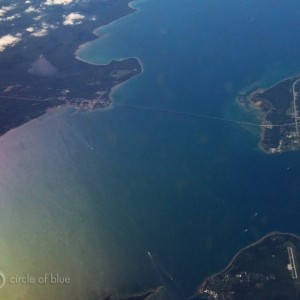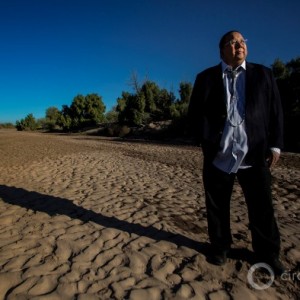The Stream, July 1: Colombia Struggles to Clean Up Rivers After Oil Pipeline Bombing
The Global Rundown |
Colombia is struggling to contain an oil spill and safeguard water supplies after rebel forces attacked an oil pipeline last week. Researchers tracked the virtual destinations of groundwater used to grow food in the United States. Perth, Australia, will begin pumping larger quantities of groundwater to supplement its water supply. In India, a semi-nomadic tribe uses collective, ancient knowledge to find water reserves.
“It is incommensurable. It is possibly the worst environmental damage in the country’s history.”–Juan Manuel Santos, president of Colombia, responding to an attack by the Revolutionary Armed Forces of Colombia (FARC) on an oil pipeline last week. The pipeline spilled more than 10,000 barrels of oil into rivers and streams in Nariño Province. (Guardian)
By The Numbers |
2,667 Olympic swimming pools Equivalent of the amount of water that will be taken annually from the Jandakot aquifer for use in Perth, Australia, following the completion of an expanded pumping system project. The West Australian
Science, Studies, And Reports |
Groundwater used to grow food in the United States is virtually transferred all over the country and abroad, according to a new study by researchers from the University of Illinois at Urbana-Champaign. The authors warn that the overuse of groundwater for current food production is jeopardizing future food security. Smithsonian Magazine
On The Radar |
Photojournalist Arati Kumar-Rao released her latest installment in a series of photo essays about water culture in the Thar desert of Rajasthan, India. “The Memory of the Wells” tells the story of a semi-nomadic tribe that can locate freshwater reserves in one of the country’s driest regions. Peepli
Circle of Blue provides relevant, reliable, and actionable on-the-ground information about the world’s resource crises.





Thanks Codi, for the ping-back… There’s more to come in the freshwater series, happy to have you along on the journey 🙂
Best,
Arati